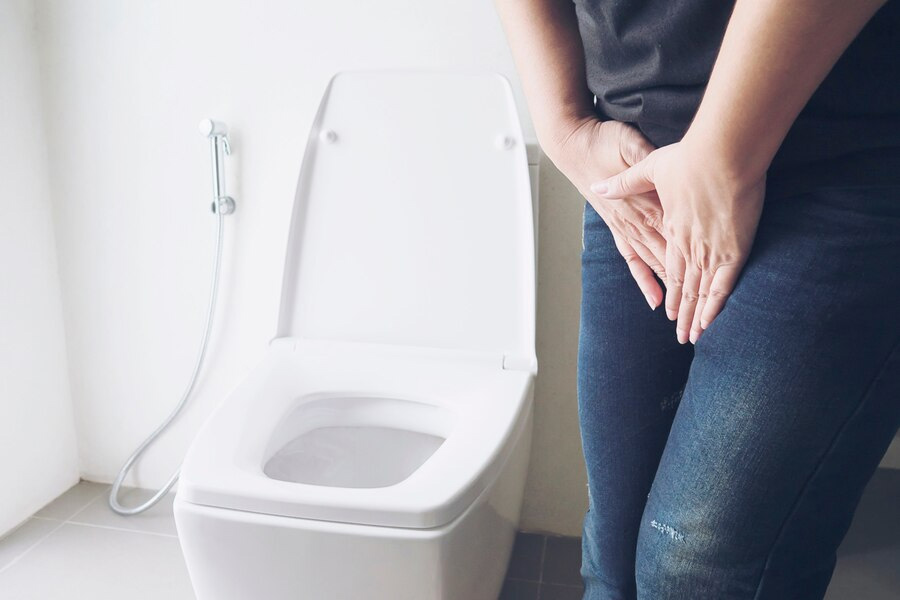
Have you ever experienced persistent abdominal pain or noticed a sudden bulge? These signs are easy to overlook, especially if they come and go. However, these symptoms could be your body’s way of telling you that something isn’t quite right—possibly a hernia. Hernias can develop gradually, often presenting symptoms that most dismiss as minor annoyances. Yet, these seemingly small issues can escalate into serious health concerns. We spoke to our expert Dr Kiran Dhake, MBBS, DMRE, Corporate Wellness Physician and Imaging Specialist, Mumbai, who listed warning signs of hernia that you shouldn't ignore.
Table of Content:-
Symptoms Of Hernia That You Shouldn't Ignore
1. A Noticeable Lump or Bulge

The most recognisable sign of a hernia is a lump or bulge in the affected area, such as the abdomen, groin, or near the navel. "This bulge may become more prominent when you’re standing up, coughing, or straining and can often be pushed back in when you’re lying down. However, a bulge that becomes firm and cannot be reduced could signal a serious complication like strangulation, where the blood supply to the herniated tissue is cut off," said Dr Dhake.
2. Persistent Pain or Discomfort
Hernias can cause pain or discomfort, especially around the bulging area. This pain can vary from a dull ache to sharp, stabbing sensations, and can worsen with physical activity, bending, lifting, or standing for prolonged periods. If the pain becomes more intense or persistent, it’s important to seek medical attention as it could indicate an incarcerated hernia, where the protruding tissue is trapped and unable to move back into place.
Also Read: Dealing With Hernia? Expert Lists 6 Tips To Manage It
3. Feeling of Heaviness in the Abdomen or Groin

"If you experience heaviness or pressure in the abdomen or groin area, it is most likely due to a hernia. This feeling may be accompanied by a dragging sensation or a sense that something is 'pulling' internally. These symptoms often worsen towards the end of the day or after standing for extended periods," said Dr Dhake.
4. Bloating and Digestive Issues
Hernias, particularly those in the abdomen, can lead to digestive disturbances, such as bloating, constipation, and difficulty passing gas. According to a 2023 study, if a part of the bowel is squeezed by the hernia, it can lead to digestive issues.
These symptoms occur because the hernia can interfere with the normal movement of your intestines, leading to a buildup of gas and waste. Chronic constipation associated with a hernia can exacerbate the problem, creating a cycle of discomfort and digestive issues.
5. Sudden Nausea or Vomiting

Nausea and vomiting are concerning symptoms that should not be ignored, particularly if they come on suddenly. In the case of a hernia, these symptoms could signal that a section of the intestine is trapped, causing a bowel obstruction.
According to the 2023 study, severe or sudden pain in the hernia site, especially if accompanied by nausea and vomiting, could indicate that the hernia sac is blocked or has lost blood supply. This can result in serious complications like peritonitis (inflammation of the peritoneum).
Also Read: Hiatal Hernia: Expert Explains Symptoms, Causes, And Treatment
6. Painful Swelling in the Groin or Scrotum
Dr Dhake said, "For men, dealing with an inguinal hernia can be particularly uncomfortable, especially when it causes painful swelling in the groin or scrotum. This swelling may be accompanied by a feeling of heaviness or a visible bulge, which can become more painful with physical exertion." Ignoring these symptoms can lead to more serious issues, including the risk of strangulation or loss of blood flow to the affected area.
7. Difficulty Urinating

Some people may also experience difficulty urinating, particularly in cases where the hernia is pressing on the bladder or other parts of the urinary tract. If you experience a sudden onset of urinary difficulties along with other hernia symptoms, it’s important to seek medical advice promptly.
8. Burning Sensation at the Site of the Hernia
A burning or aching sensation at the hernia site is another critical symptom to watch for. This discomfort can be constant or intermittent and is often aggravated by activities that put strain on the affected area, such as lifting heavy objects or straining during bowel movements.
9. Constipation or Changes in Bowel Habits
Dr Dhake said, "People with hernia may even experience chronic constipation or noticeable changes in bowel habits, particularly when associated with other symptoms like abdominal pain or a bulge. The hernia can obstruct the intestines, making it difficult for stool to pass, which may lead to severe constipation and further complications if left untreated."
10. Difficulty Breathing
In rare cases, a large hernia, particularly a hiatal hernia, can cause difficulty breathing by putting pressure on the diaphragm or lungs. If you experience shortness of breath in conjunction with other hernia symptoms, it’s vital to consult a healthcare professional immediately.
[Disclaimer: This article contains information provided by an expert and is for informational purposes only. Hence, we advise you to consult your own professional if you are dealing with any health issues to avoid complications.]
Read Next
Optimising Performance: Expert Shares Proven Tips for Asthmatic Athletes To Stay At Their Peak
How we keep this article up to date:
We work with experts and keep a close eye on the latest in health and wellness. Whenever there is a new research or helpful information, we update our articles with accurate and useful advice.
Current Version
